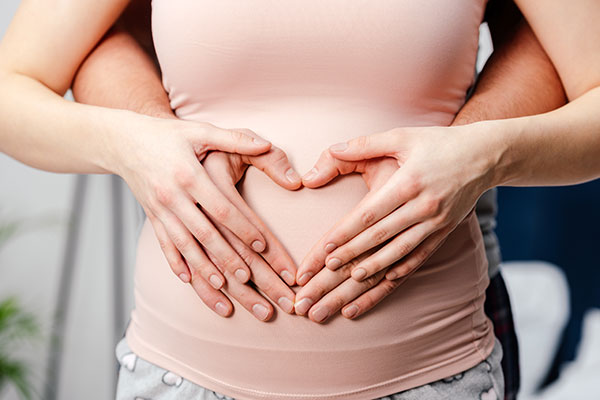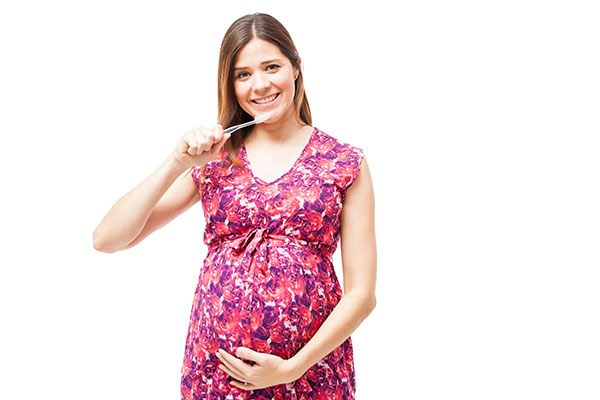
What Is Pregnancy Gingivitis & How To Manage It
Pregnancy gingivitis is a form of gingivitis that is caused by the change of hormones during pregnancy. The increase of estrogen will cause the gums to be more susceptible to inflammation and bleeding. Pregnancy gingivitis can affect pregnant women at any stage of pregnancy. However, it may be more severe in the 2nd and 3rd trimester. Pregnancy gingivitis can also affect a new mother while nursing. Often, pregnancy gingivitis and its symptoms will subside on their own after birth and nursing of the baby. In some cases, if pregnancy gingivitis is left untreated, it can cause severe gum issues such as “ANUG” and “ANUP,” which are acute but severe bursts of inflammation in the gums and surrounding tissues.
Symptoms of Pregnancy Gingivitis
In most cases, pregnancy gingivitis results in slightly more inflamed gum tissues than usual. Gum inflammation, gum bleeding, red and puffy gums and sore/ tender gums are the main symptoms. Sometimes these symptoms can be paired with a pregnancy “tumour,” which is a bulbous, puffy piece of gum tissue usually localized between teeth. During pregnancy, the body’s response to plaque bacteria is increased, and therefore, there will be a more severe response than usual to plaque accumulation.
Preventing Pregnancy Gingivitis/ Reducing Symptoms

Sometimes pregnancy gingivitis is not entirely preventable, but it is possible to reduce the symptoms. Making sure you brush at least twice a day and floss at least once a day is a vital component of keeping pregnancy gingivitis at bay. Using an antibacterial mouth rinse is also essential to reduce the overall number of oral bacteria. Make sure you rinse your mouth with water regularly if you are experiencing morning sickness. It is vital not to miss your regular check-ups and cleanings. Your dental hygienist may even recommend more frequent cleanings (every 3-4 months) for the duration of the pregnancy to keep your gums as healthy as possible and reduce symptoms.
